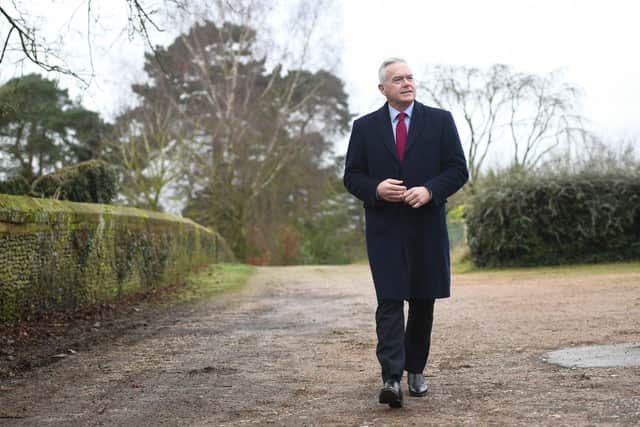Uninformed speculation about Huw Edwards case is not helping – Christine Jardine
I don’t know Huw Edwards. I haven’t seen any of the evidence. I don’t know any of the details of the allegations and I’m not about to judge. Neither am I in a position to say whether the BBC acted appropriately and fairly towards members of staff caught up in this story.
Nor whether the Sun, or other media, acted responsibly to report the concern of parents for their teenage child or leapt recklessly to conclusions. Because that is not what I have found most disturbing about the frenzy of speculation that swept away the stability and security of at least one family, potentially several, this past week.
Advertisement
Hide AdAdvertisement
Hide AdWhat worried me most were the opinions that so many people, many of them in the same uninformed position as myself, were happy to dole out about the guilt, innocence or motivations of the individuals and organisations involved. Somehow the fact this was about real people seemed not to register.
Until, that is, the news came that the unnamed person was now named and in hospital dealing with serious mental health issues. That is when the blame attribution began to shift towards the BBC and the Sun, amid more speculation, none of it dealing with the actual issue.
We have a problem in this country with not just our workplace culture, but beyond. I worry we've lost the ability to treat each other with respect. It’s not a new phenomenon. But it does seem, inexplicably, to continue to defeat our collective will.
More years ago than I care to remember, my female colleagues and I in various workplaces had to put up with a constant barrage of what our male colleagues liked to call “banter”. To react or object in any way to being subjected to comments about your looks, dress, appearance, what you and your boyfriend might be up to, and so much worse was often dismissed as a sense of humour failure.
Further ridicule followed. The most frustrating thing was that usually these were otherwise reasonable people who would do anything to help with your career or offer constructive advice on your work. They just could not see how their “banter” made us feel. Or when it went further, the impact their behaviour could have on your self-esteem or confidence.


I would love to say that things have improved, but I am not sure they have. In some ways, abusive diatribes and explicit posts normalised by social media have made it worse. Is it acceptable to harass young women and men?
What we have seen this past week is, at its very heart, a reminder of how dangerous disrespectful behaviour of any kind can become. Whether it’s in person, via the internet or in media stories widely published and broadcast.
An investigation is underway at the BBC. In parliament there are, and have been, numerous inquiries into various MPs’ behaviour. It’s time we recognised that bad behaviour is not any more isolated than it is acceptable. Wherever it happens, whoever it involves and whatever the accusation.
Advertisement
Hide AdAdvertisement
Hide AdFor every incident or allegation, there is so much upset, so much trauma. So many families picking up the pieces, whether we can see it or not. It is time we looked closer.
Christine Jardine is Scottish Liberal Democrat MP for Edinburgh West
Comments
Want to join the conversation? Please or to comment on this article.